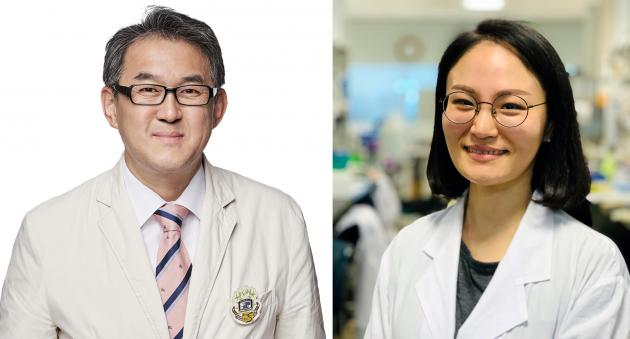A research team at the Catholic University of Korea College of Medicine has derived a gene that aids recovery from arthritis, suggesting its possibility as a biomarker that monitors such recovery.
Most arthritis patients experience the recurrence and improvement of symptoms rather than continuous progress of inflammation. As its complete recovery is difficult, maintaining a good condition for a long time to improve the swelling is usually the most effective way to reduce joint damage and prevent permanent disability.

Until recently, however, most of the studies have focused on what triggers or aggravates inflammation. Few systematic and extensive studies have been conducted to discover the mechanisms that mediate the natural healing of arthritis and related genes and core pathways.
The research team led by Professor Kim Wan-uk focused on why arthritis improves itself sometimes. The researchers thought if they could find why and discover the core biomaterials that take the lead in the recovery process, they would be able to develop a balanced treatment method according to their biorhythms and a few ill effects.
Researchers secured joint tissues of the mouse that improved symptoms naturally after suffering severe collagen-induced arthritis and analyzed their more than 30,000 transcriptomes at once by using ribonucleic acid sequencing method and finally selected three core genes -- integrin beta-1 (Itgb1), Ribosomal Protein S3 (RPS3), and Ywhaz -- through various analysis and cell culture experiments.
They observed the therapeutic effect of Ywhaz in an animal model with arthritis as it showed the most potent anti-inflammatory effect in the cell culture experiment.
The administered Ywhaz gene significantly suppressed the progression and exacerbation of arthritis and reduced the expression of inflammatory cytokines in joint tissue, lymph nodes, and spleen tissue.
The concentrations of Ywhaz were continuously measured in the urine of 65 patients with rheumatoid arthritis for six months before and after treatment with anti-rheumatic drugs.
Ywhaz concentration increased in patients whose symptoms improved with the treatment. However, those with little or no therapeutic effect showed no change or even decreased Ywhaz concentration level, respectively.
“By using the results, I hope the day will come when we can establish the assessment system of biomarkers that precisely forecast the patients’ recurrence and recovery, and develop new treatments that minimize adverse effects,” Professor Kim said.
The study was published online on May 14 in the Journal of Clinical Investigation, and the study was chosen as a highlighted issue by Nature Reviews Rheumatology.

